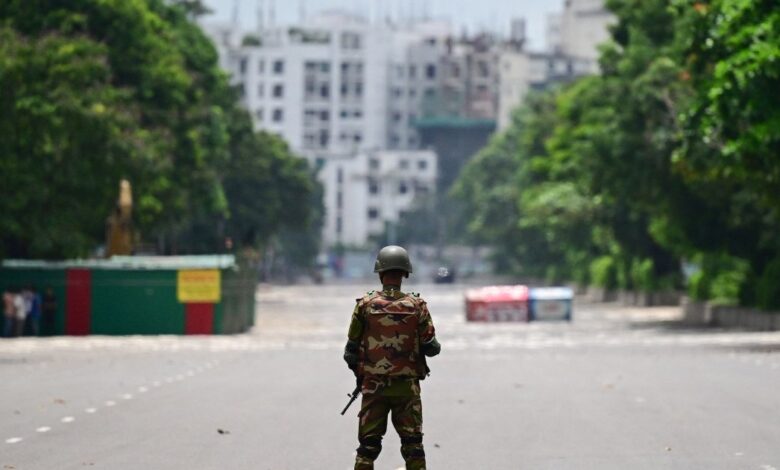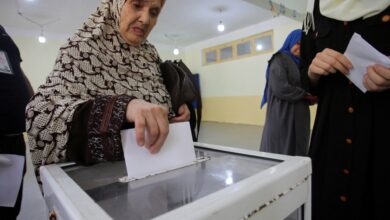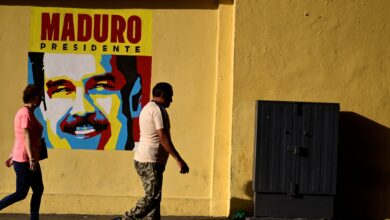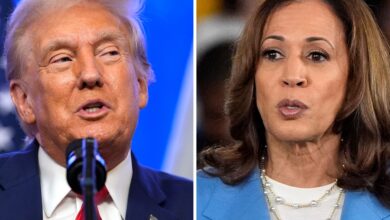
Demonstrators insist they won’t be placated by change in the government job quota system; want curfew lifted, detainees released.
Protesters in Bangladesh have issued demands amid a lull in the violence that has filled the streets in recent days after the government backed down on quotas on hiring for government jobs.
Student leaders said on Monday that they plan to continue demonstrations despite a decision by the Supreme Court the previous day scaling back the controversial job quota system that sparked the protests. A deadly government crackdown ahead of the ruling saw a reported 163 people killed, hundreds arrested, and thousands injured.
The demonstrators have demanded that the government release protest leaders, lift the military curfew, and reopen the universities, which have been shut since Wednesday. They said they would give the government 48 hours to meet the demands.
Protesters were attacked by security forces, as well as other students who back the ruling Awami League party, last week as they launched their call against the quota system, which sought to reserve sought-after government jobs for relatives of war veterans and other groups.
Although the court has largely annulled the quotas, the protesters have demanded accountability for the crackdown, including the resignation of ministers.
They have also called for swift formalisation of the ruling. Law Minister Anisul Huq promised on Sunday that the government would implement the changes to the legislation within days.
Challenges
As on Sunday, the military curfew that was implemented during the protests was relaxed for several hours on Monday to allow people to buy essentials. However, internet connections remained severed for a fourth straight day in the nation of 170 million.
After a call for a nationwide shutdown on Monday by the protesters, soldiers continued to roam the streets and tanks were stationed across the streets of the capital Dhaka. No more fatalities or large-scale gatherings had been reported by the late afternoon as a tentative calm persisted.
The protests came amid a shaky economic backdrop. While Bangladesh’s economy has grown since 2009 during Prime Minister Sheikh Hasina’s four terms, it faces major challenges, including inflation and high youth unemployment.
Hasina has also been accused of authoritarianism and human rights violations, charges her government has denied. The antigovernment protests have presented the biggest challenge to her rule.
Amid the protests, the government expanded a crackdown on opposition parties, with at least 70 arrests made among the Bangladesh Nationalist Party.
The jobs quota system, which had earlier been set aside by the government but was revived by a court last month, would have given 30 percent of government jobs to relatives of those that fought in the war that won independence from Pakistan in 1971.
Once scaled back, 93 percent of public sector jobs will be dedicated to merit-based recruits, with 5 percent earmarked for veterans’ family members. A further 2 percent will be reserved for people from ethnic minorities or with disabilities.
Source link




